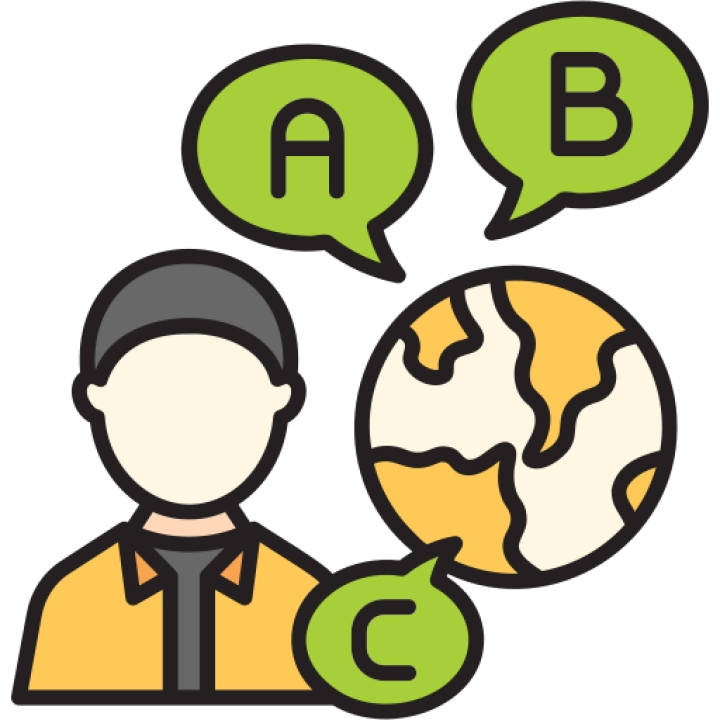College: Vocational School
This major provides a comprehensive understanding of the principles and practices of applied English language and translation, focusing on developing linguistic proficiency and translation and intercultural communication skills. Students explore key areas such as linguistics, translation theory, and practical translation techniques. The program emphasizes language mastery, analytical thinking, and the application of translation skills to bridge linguistic and cultural gaps. Graduates are prepared for careers in translation, interpretation, language teaching, and intercultural communication.
Learning Objectives:
- Understand the basics of linguistics and translation theory.
- Develop translation and interpretation skills between English and other languages.
- Learn techniques for handling specialized texts, such as legal, medical, and technical documents.
- Explore the role of cultural context in translation and communication.
- Understand the principles of language teaching and curriculum design.
- Analyze challenges and opportunities in translation and applied linguistics fields.
- Develop critical thinking and problem-solving skills for language-related projects.
Main Outline:
- Introduction to Applied English and Translation
- Overview of the field, its history, and its importance in global communications.
- Linguistics and Language Structure
- Study of phonetics, grammar, semantics, and pragmatics.
- Techniques for analyzing and using language structure.
- Translation Theory and Practice
- Principles of translation theory, including equivalence, fidelity, and cultural adaptation.
- Techniques for translating different text types, including literary, technical, and legal documents.
- Specialized Translation
- Fundamentals of translating specialized texts such as medical, legal, and technical documents.
- Techniques for handling terminology and concepts specific to a certain field.
- Interpretation Skills
- Study of simultaneous and consecutive interpretation techniques.
- Effective oral translation techniques in real-time environments.
- Intercultural Communication
- Exploration of cultural differences and their impact on translation and communication.
- Techniques for bridging cultural gaps in multilingual contexts.
- Language Teaching and Curriculum Design
- Principles of language teaching methodologies and curriculum development.
- Techniques for designing and implementing language teaching programs.
- Emerging Trends in Translation and Applied Linguistics
- Analysis of innovations like machine translation, localization, and multilingual content creation.
- Techniques for adapting to new trends and technologies in the field.
- Capstone Project in Applied English and Translation
- Real-world project to apply skills acquired in translation, interpretation, or language teaching.
- Techniques for delivering a comprehensive language or translation solution.
Assessment Methods:
- Translation projects and interpretation exercises.
- Writing assignments in linguistics, translation theory, and intercultural communication.
- Group projects in language teaching and curriculum design.
- Participation in internships or fieldwork with translation agencies, educational institutions, or multinational organizations.
Recommended Textbooks:
- "Introducing Translation Studies: Theories and Applications" by Jeremy Munday.
- "The Translator's Invisibility: A History of Translation" by Lawrence Venuti.
- "Translation: An Advanced Resource Book" by Basil Hatim and Jeremy Munday.
- "Teaching by Principles: An Interactive Approach to Language Pedagogy" by H. Douglas Brown.
Prerequisites:
Basic knowledge of English and another language is recommended. Suitable for students in linguistics, language studies, and related fields.
Program Duration:
Typically 4 years, including coursework, translation projects, and internships.
Certification:
Graduates may earn a degree in applied English and translation or a related field and may pursue additional certifications (e.g., certified translator, TESOL).
Target Audience:
Aspiring translators, interpreters, language teachers, and intercultural communication specialists seeking to excel in the fields of translation and applied linguistics. This major equips students with the linguistic, analytical, and cultural skills needed to excel in applied English and translation, leading to effective communication and understanding across languages and cultures.




